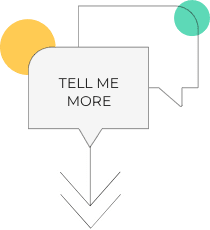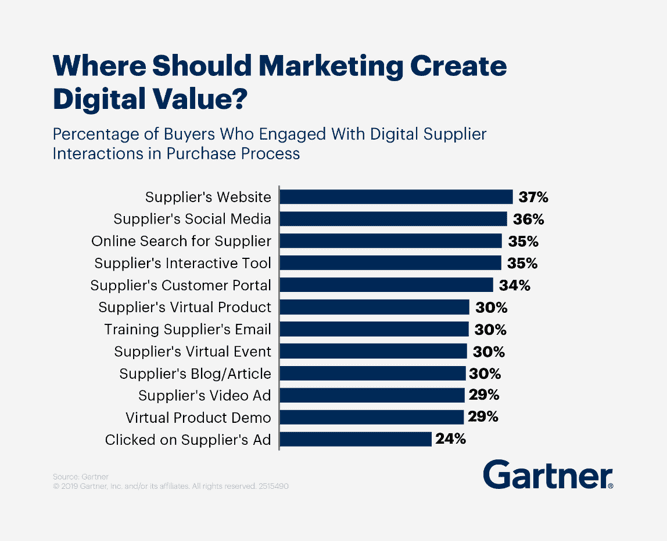
7 Benefits of B2B Ecommerce
B2B buyers and sellers have embraced the benefits of ecommerce, with B2B ecommercxe sales surging to $2.1 trillion last year, up 17% from 2022. This growth reflects a fundamental change in a B2B buying journey that once occurred primarily offline.
Now B2B buyers, many of whom are millennials, are turning to digital channels to research and purchase goods and services. These digitally-savvy buyers expect the same kind of intuitive digital experiences they enjoy from the consumer ecommerce experiences they get with top digital marketplaces like Amazon, ebay and Walmart. But B2B ecommerce is complex. According to McKinsey, buyers use, on average, ten channels to interact with suppliers. They blend digital and traditional touchpoints across this very complex B2B buying their journey – a journey that typically involves buying groups of about 6 to 10 people.
For B2B sellers, the bare minimum for establishing an ecommerce presence involves launching or updating your online storefront. But to meet digitally-savvy buyers, you need a B2B ecommerce software platform that can connect the digital buying ecosystem so that it’s as seamless as it is personalized and relevant.
What is B2B Ecommerce?
B2B ecommerce is the online sale of products or services between businesses. It includes your website as the primary selling channel. It can also include any online touchpoint that B2B buyers use to research, source, and purchase products. According to Gartner, top B2B ecommerce channels include, in this order: the supplier’s website, social media platforms, search engines, interactive tools (provided by the supplier), and customer portals.
Having the right B2B ecommerce software is an important part of managing the digital buying journey because it connects these online touchpoints together. It may also handle inventory and order management, website search, customer support, and act as a virtual showroom and selling tool.
Advantages of B2B Ecommerce
Convenience, diversity of channels, and digitally-driven, self-propelled purchasing experience of B2B ecommerce are driving more buyers online. Here are some important reasons that sellers must embrace B2B ecommerce as part their B2B selling strategy:
1. It Simplifies the Complex B2B Buying Process
B2B ecommerce simplifies buying and supports the growing demand for self-service options from buyers. Most B2B buyers want to bypass reps completely, tackling bulk of the buying journey on their own. Ecommerce makes this possible. Large investments on technology and equipment typically involve multiple decision-makers and require intricate approval processes, making self-service options a necessity. Moving a large part of the buying journey online supports the way today’s B2B buying groups operate – fitting neatly into hybrid workplaces and across distributed teams.
2. It Lets You Reach Customers Anywhere
Having a digital presence breaks down geographical barriers. Your products become accessible to a global audience, 24/7. This expanded reach means you’re attracting new customers, while testing and expanding into markets you couldn’t tap into before. You’re able to serve customers across different time zones and regions that wouldn’t be possible with a physical presence alone. In fact, you may not even need to have a bricks and mortar location at all.
3. It’s Incredibly Efficient
The technology that powers B2B Ecommerce saves time by automating certain (non-value adding) tasks. For example, AI and machine learning algorithms can recommend products based on customer information and browsing behavior, automating the process of upselling and cross-selling. Chores that once consumed your sales team’s time (e.g., contact management, content creation, appointment scheduling) can be automated. This translates to better overall customer experience – your customers get their orders quickly and with fewer snafus.
4. It Makes the B2B Buying Journey More Relevant
B2B buyers are crunched for time, being pulled in about a thousand directions at once. Ecommerce platforms make it possible to personalize and tailor digital buying with data and AI that refines search results and guides the buying journey with personalized content based on the buyer (e.g., product recommendations, pricing, and messaging). This type of curated buying experience is essential in the B2B buying environment. It helps buyers find what they need faster and makes them more likely to purchase.
5. It Supports Informed Decision Making
Data is the foundation of B2B ecommerce. Platforms like Monetate process tremendous amounts of data including past purchase history, browsing behavior, sales and service interactions. This information is used to feed the machine and teach it how to deliver more relevant experiences. This data can also be used to better understand the B2B buying journey and optimize that journey accordingly. Spot trends, predict demand, and remove obstacles based on insights gained from the data you collect.
6. It Never Sleeps
Ecommerce is an always-on channel and that means your B2B ecommerce site is always open, ready to take orders. Round-the-clock availability is a major benefit for global businesses. Your customers can place orders anytime and at their convenience, which checks the self-serve box and improves the B2B customer experience. No more waiting for office hours or playing phone tag.
7. It Cuts Your Expenses
Since B2B ecommerce is virtual, it reduces – even eliminates – the need for physical showrooms and large sales teams. This, along with the combined savings of the other benefits we mentioned, contribute to an overall reduction in operational costs. From more efficient order processing to reduced time spent fixing human errors to self-service options that save money on customer support – the savings add up.

How Can B2B Ecommerce Personalization Improve My ROI?
Ecommerce personalization increases ROI for sellers in a few different – equally important – ways. It makes it possible to tailor buying experiences to each B2B customer, a needed and nuanced approach since there are often multiple stakeholders involved in a single buying group. This relevancy makes the buying journey easier because it connects buyers with the right products, information, tools, and people.
B2B ecommerce personalization also allows you to customize the entire B2B buying journey across every digital touchpoint and channel. Considering how many touchpoints are involved, this is an essential and needed capability. And personalization platforms like Monetate use data to achieve all of this while collecting valuable data that can be used to refine the buying journey, understand buyers’ needs, and better inform your marketing and sales approach.
